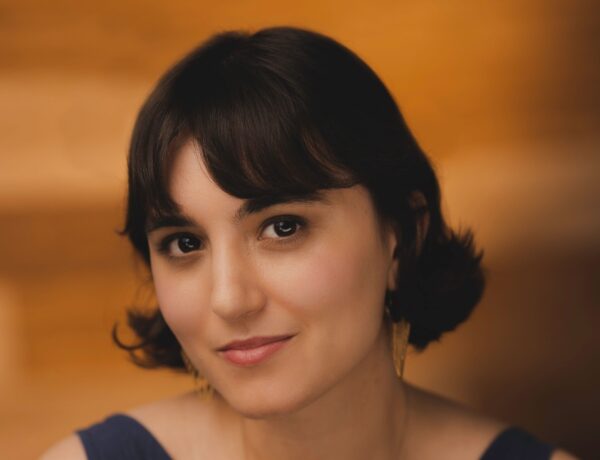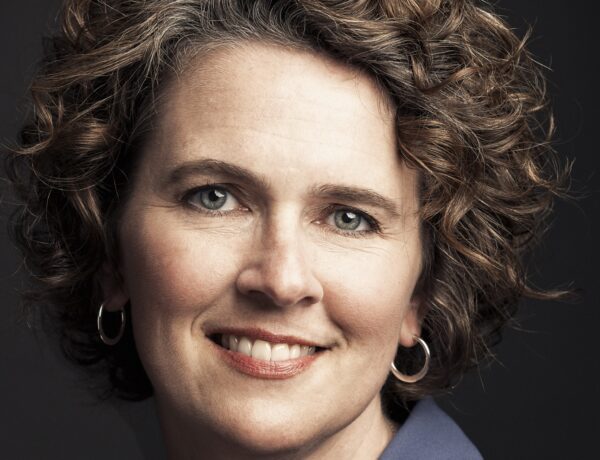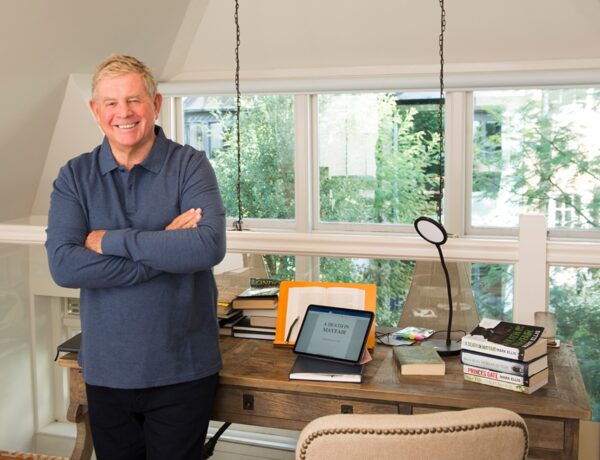Morgan Thomas is a writer from the Gulf Coast. Their debut story collection, Manywhere, was published by MCD-FSG and received starred reviews from Kirkus and Publisher’s Weekly. Their work has appeared in The Atlantic, American Short Fiction, The Kenyon Review, and elsewhere.
They were the recipient of Lambda Literary’s Judith Markowitz Award for Exceptional New LGBTQ+ Writers and have also received support from the Bread Loaf Writers’ Conference, the Southern Studies Fellowship, and the Fulbright Foundation.
Hi Morgan, congratulations on the publication of your debut story collection, Manywhere. Can you tell us a bit about the inspiration behind the book and what readers can expect?
Manywhere follows Southern queer and genderqueer characters as they search for community—both modern and historical. In the first story, a contemporary genderqueer character travels to Ellis Island in an attempt to meet Frank Woodhull, whom they see as an inspiration for their genderqueerness, in spite of the fact that Woodhull passed through Ellis Island in 1908. In another story, a young person stuck at a train station finds an unexpected companion, and alternate possibilities for their life, when a woman insists they are a vampire. In the title story, a young trans person brings home a replacement daughter for their elderly father.
The collection explores themes of gender, identity, and history. Can you talk about why these themes were important to you and how they influenced your writing process?
I wrote these stories as a way of visualizing for myself, on the page, the Southern queer and genderqueer community I couldn’t find around me. As I began that work, I became aware of the complex ethical questions that accompany any search for white, settler, genderqueer ancestry or lineage.
What does it mean to declare that Frank Woodhull was transgender, though Woodhull lived before the term existed? What are the implications of feeling, as a genderqueer person in the 21st century, a connection with a genderfluid settler in the Jamestown colony, someone who was directly complicit in projects of white supremacy and colonization? Writing these stories offered a way of exploring those questions.
In terms of the writing process, I often began these stories with a strong emphasis on the historical figures and secondary characters who inspired them—like Frank Woodhull or Thomasine Hall. However, as I revised, the stories developed layers of narration necessary to frame more clearly the ethical questions that felt increasingly central to me.
Manywhere includes stories that span across centuries and locations, from Colonial-era Jamestown to modern-day Gulf Coast. Can you speak to the significance of geography and time in your storytelling? And as a second part to this question, what does the term “queer mythmaking” mean to you, and how do you see your work contributing to a broader understanding of queer literature and storytelling?
The south feels to me like a place full of myths. From the outside, it’s often characterized as a monolith—of racism, conservative politics, homophobia, transphobia. Jesmyn Ward, in her beautiful essay My True South: Why I Decided to Return Home to Mississippi, describes her home state as “the memory America invokes whenever it wants to convince itself that racial violence and subjugation are mostly lodged in the past, that they have no space in our present moment, save in this backwoods, backward place.” Then there are the stories the white South (itself a myth) tells about itself—that it’s a place where friendliness and neighborliness override bigotry, that it has overcome its violent histories.
As a white genderqueer person who lived in the South for the first 23 years of my life and returned right as Manywhere was being published, I have trouble locating myself within either of these sets of myths. This lack of alignment motivated the mythmaking within the collection—stories of invention and re-invention, which often include a historical gaze, because for these characters discovering one’s self requires reckoning with the past.
As state legislation increasingly targets trans people, their healthcare providers, and their communities, throughout the South, it feels still more important to me to insist on the multiplicities present within that region, on the reality that trans joy and vibrant trans communities exist throughout the Southern states, even as some people work to deny them basic rights.
You were the recipient of Lambda Literary’s Judith Markowitz Award for Exceptional New LGBTQ+ Writers. How has this recognition impacted your writing career?
It was such an honor to be recognized by Lambda Literary, an organization I deeply admire. The award centrally helped to ground me in the period of my life immediately after my first book came out, reminding me why I write and who I’m primarily writing for. It made it easier to begin (and has made it easier to continue) the work of a second book.
You’ve also received support from the Bread Loaf Writers’ Conference, the Southern Studies Fellowship, and the Fulbright Foundation. Can you discuss the importance of these programs and how they have helped you grow as a writer?
I’ve been so grateful to the many organizations that have offered support for my study of writing. These three programs were especially wonderful, as they came at a time in my life when I was without an expansive writing community, and completely without a genderqueer writing community. During these programs, I connected with people I continue to count as dear friends and brilliant writers. Their work inspires me and their friendship helps me continue to write and to send out my work.
Your work has been praised for its emotional intelligence and range. Can you discuss your writing process and how you approach crafting stories with such depth and nuance?
My writing process is highly iterative. I tend to draft relatively quickly, but then to revise over a period of years, writing and rewriting each story, considering why I’m writing it, why I’m writing it the way I’m writing it. As time passes, I become increasingly clear-sighted about my own biases, my own (sometimes less than ideal) motivations for writing, and the internalized thought structures that have led me to shape the story in a specific way.
Sometimes I revise away from those things, but often I decide instead to make them more present on the page. The work of the story, then, becomes directly engaging those thought-structures or biases, exploring their source and their limitations. Adding these layers of narration means I’m often writing a story about writing a story, which I think creates a specific effect and helps me maintain complexity.
What advice do you have for aspiring writers, particularly those who are underrepresented in the literary world?
I’d just emphasize again the importance of community, of support from other writers who share your lived experiences, and of collaboration. I used to think of writing as a solo activity, but I realize now how central collaboration is and has always been to my drafting process.
First readers and professional editors are one part of this, but so are the writers to whom I can bring questions about gaps in a draft or what feels to me like an insurmountable structural problem in a story. So are the friends, often queer and gender-expansive themselves, who talk with me about gender and love and how we want to show up in the world. Those conversations make me a better person and a better writer, a writer more able to navigate the professional aspects of writing (the submissions and rejections!) with patience and composure.
I’d love to know about the books you’re reading at the moment. What have been some of your favorite recent reads?
This is a slight deviation from your question, but I recently had the distinct pleasure of hearing Paul Tran perform several works of poetry (some from their collection All the Flowers Kneeling), and it was an absolutely sublime experience. I’ve also recently loved Jasmine Sawers’ The Anchored World and Sasha LaPointe’s Red Paint.
What does your current writing workspace look like?
I’m currently moving a lot, so my writing space shifts every few months. At the moment, it’s a natural-edge wooden desk in a loft overlooking the Pacific Ocean. When I’m luckiest, a large herd of elk graze just down the hill. In a month or so, it’ll be a bunk on a tall ship in the Arctic Ocean. Soon after, it will be a rustic cabin in the Catskills. In terms of writing workspace and routine, the experience of moving from place to place has taught me to be easier with the unknown.




No Comments